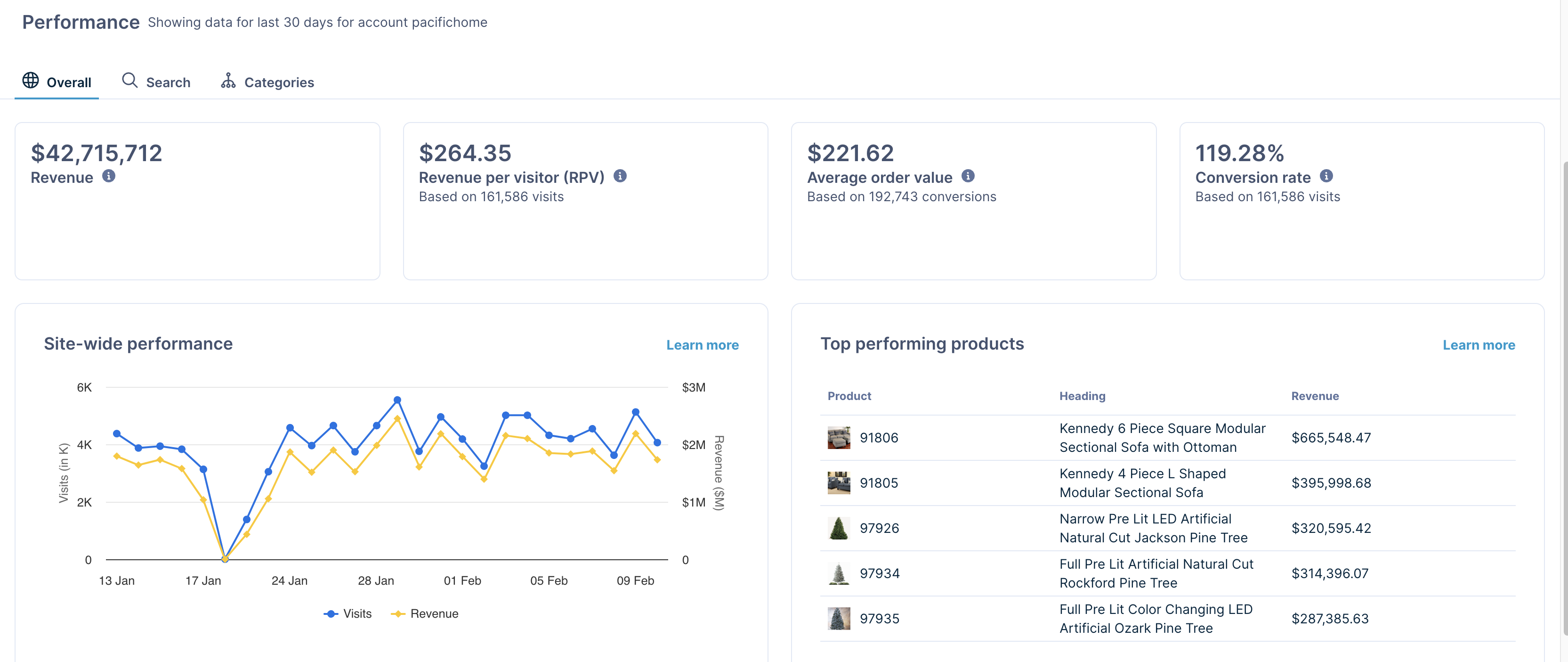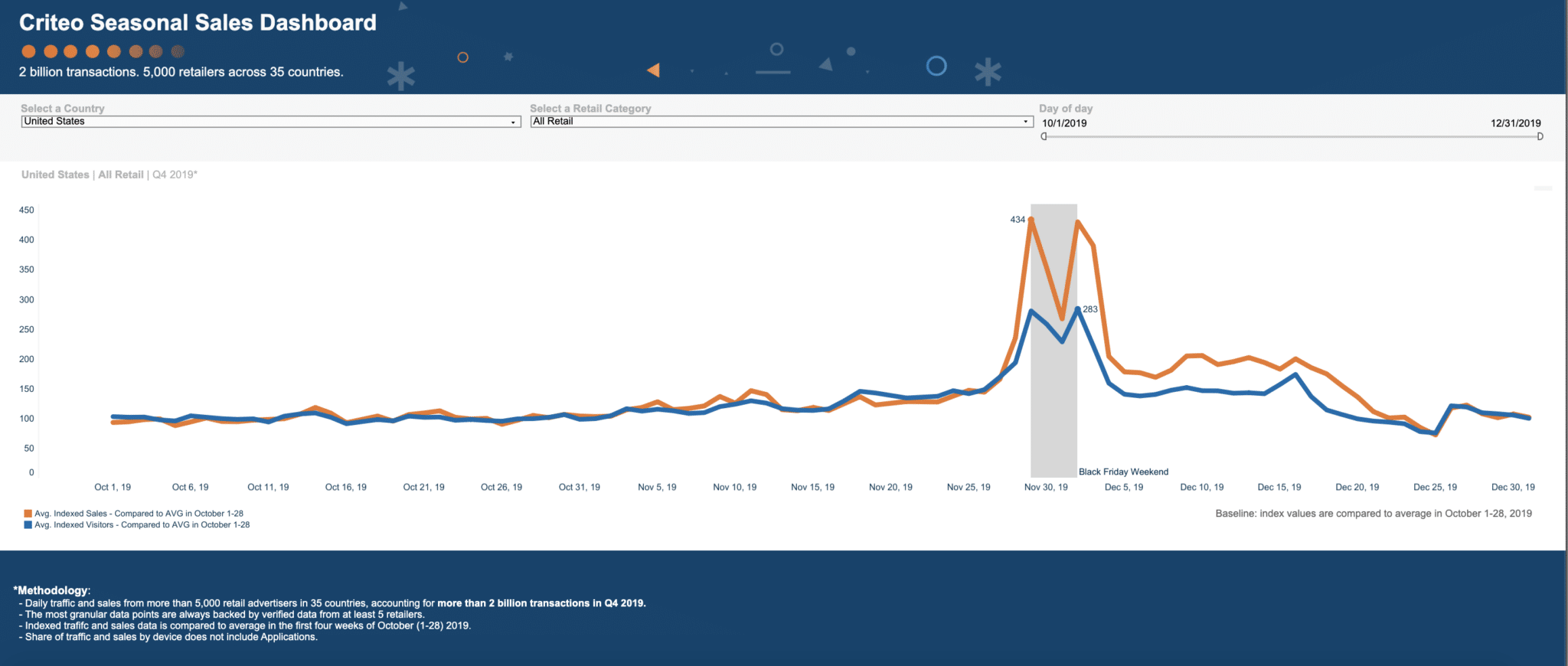Alternatives to AdRoll
1. Bloomreach Discovery
+Pros
- Commerce-Specific AI Expertise with Loomi AI engine trained on over 14 years of commerce data.
- Proven Performance Results with consistent value delivery across diverse customer implementations.
- Enterprise-Scale Technical Architecture with server-side execution and 24/7 enterprise SLA coverage.
- Automated Merchandising Capabilities reducing manual operational tasks by 30-50%.
-Cons
- Implementation Complexity with enterprise deployments requiring 20+ weeks for custom Java integrations.
- Pricing Volatility Concerns with unexpected price changes during contract periods.
- Limited Front-End Flexibility compared to alternatives like Algolia.
- Reliability Risks with documented outages during holiday code freezes.
One highlighted feature and why it's amazing
Uses natural language processing to interpret contextual queries, successfully distinguishing between similar terms like 'dress shirt' versus 'shirt dress'.

Another highlighted feature of why it’s amazing
Combines real-time user behavior with historical data to dynamically adjust search results and category pages for individual users.
2. Criteo
+Pros
- Commerce-specific AI capabilities that process over $1 trillion in annual transaction data from 720 million daily active shoppers.
- DeepKNN vector database delivering over 10% click-through rate increases through behavioral embeddings.
- Proven customer success with premium retail brands achieving 1,000%+ purchase completion uplift and 60% year-over-year growth.
-Cons
- Technical complexity requiring 6-8 weeks for deployment versus 2 weeks for traditional tools.
- Minimum 10,000 user interactions needed for AI effectiveness, limiting accessibility for smaller retailers.
- Implementation challenges including API integration difficulties and 5+ business day requirements for campaign modifications.
One highlighted feature and why it's amazing
Powered by transaction-driven AI that processes over $1 trillion in annual commerce data.

Another highlighted feature of why it’s amazing
Enables behavioral embeddings and purchase grouping analysis, delivering over 10% click-through rate increases through sophisticated product-level targeting unavailable in general advertising tools.
Other Alternatives
Google Ads
Meta Ads Manager
Nosto Commerce Experience Platform
Nosto Commerce Experience Platform
How We Researched This Guide
About This Guide: This comprehensive analysis is based on extensive competitive intelligence and real-world implementation data from leading AI vendors. StayModern updates this guide quarterly to reflect market developments and vendor performance changes.
188+ verified sources per analysis including official documentation, customer reviews, analyst reports, and industry publications.
- • Vendor documentation & whitepapers
- • Customer testimonials & case studies
- • Third-party analyst assessments
- • Industry benchmarking reports
Standardized assessment framework across 8 key dimensions for objective comparison.
- • Technology capabilities & architecture
- • Market position & customer evidence
- • Implementation experience & support
- • Pricing value & competitive position
Research is refreshed every 90 days to capture market changes and new vendor capabilities.
- • New product releases & features
- • Market positioning changes
- • Customer feedback integration
- • Competitive landscape shifts
Every claim is source-linked with direct citations to original materials for verification.
- • Clickable citation links
- • Original source attribution
- • Date stamps for currency
- • Quality score validation
Analysis follows systematic research protocols with consistent evaluation frameworks.
- • Standardized assessment criteria
- • Multi-source verification process
- • Consistent evaluation methodology
- • Quality assurance protocols
Buyer-focused analysis with transparent methodology and factual accuracy commitment.
- • Objective comparative analysis
- • Transparent research methodology
- • Factual accuracy commitment
- • Continuous quality improvement
Quality Commitment: If you find any inaccuracies in our analysis on this page, please contact us at research@staymodern.ai. We're committed to maintaining the highest standards of research integrity and will investigate and correct any issues promptly.